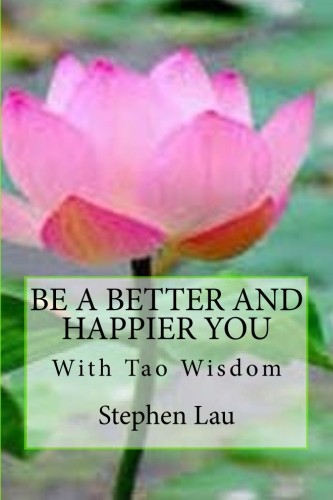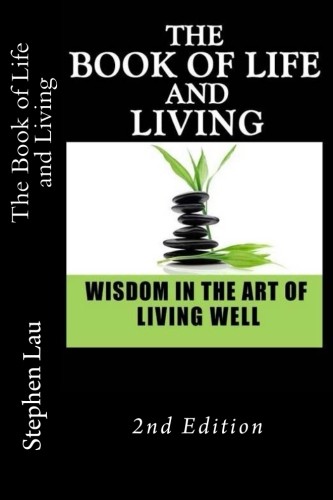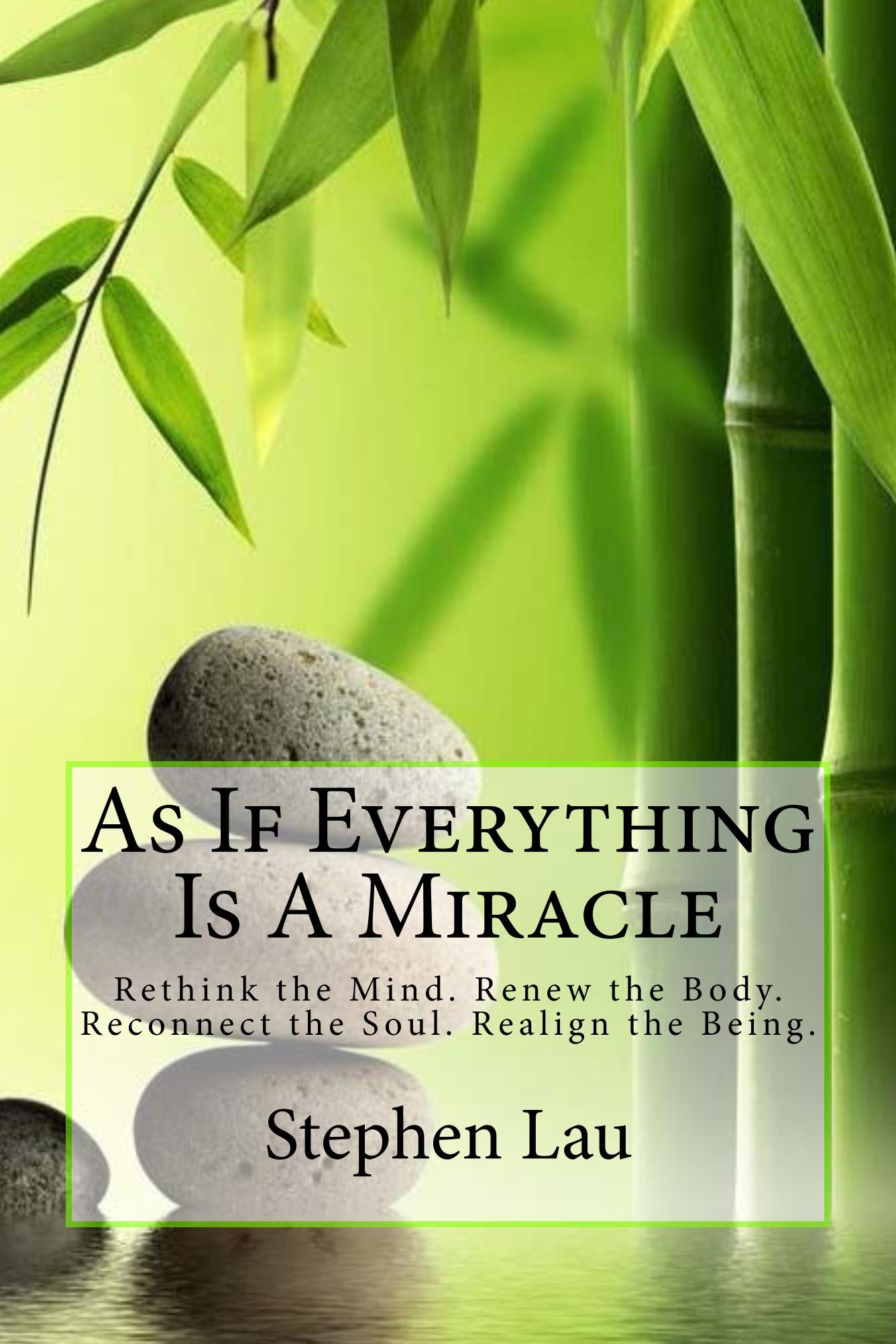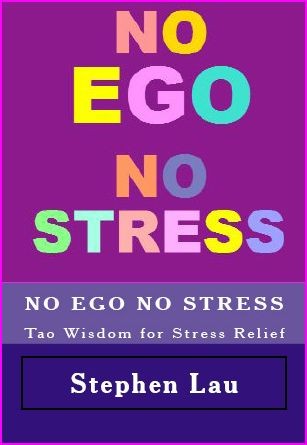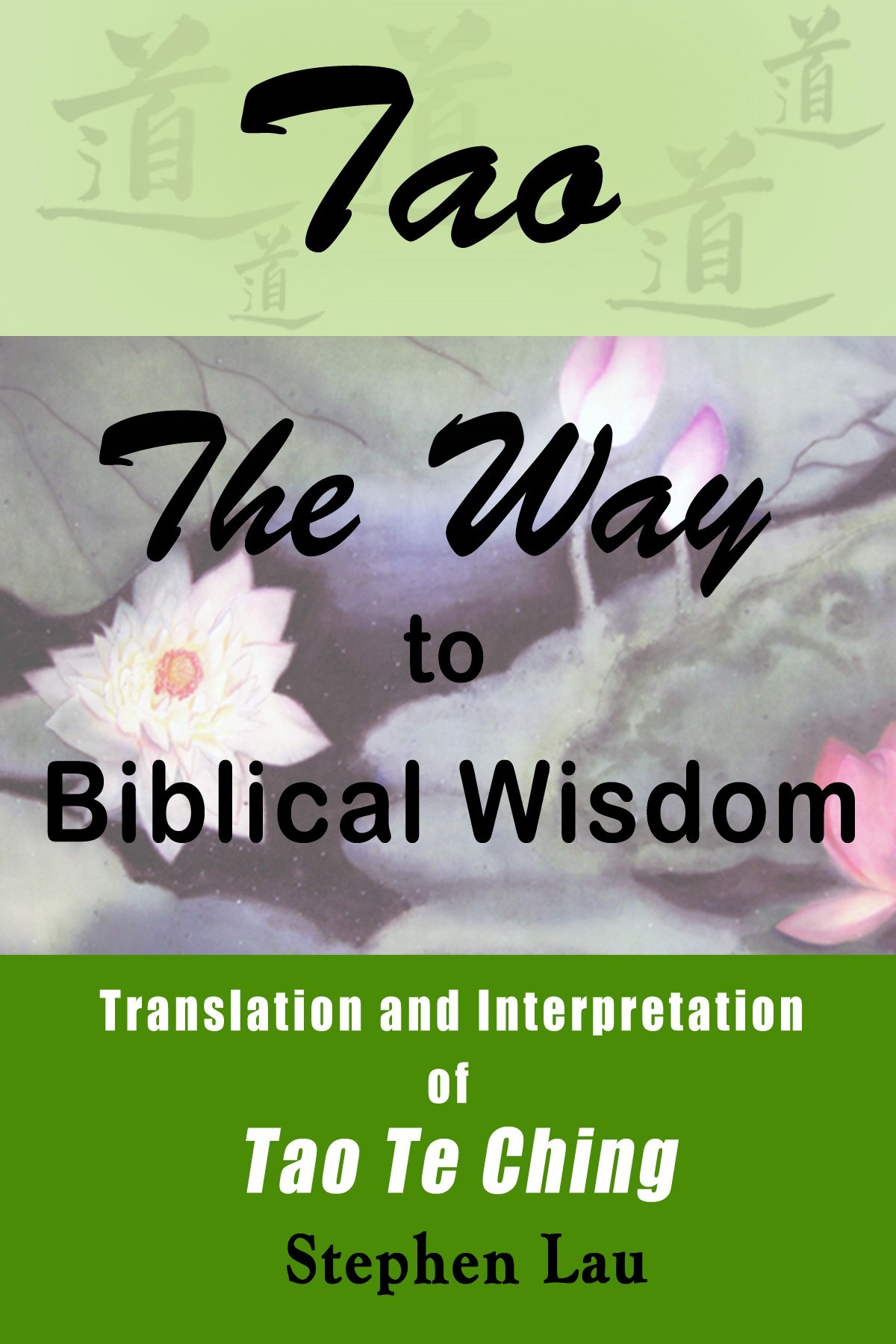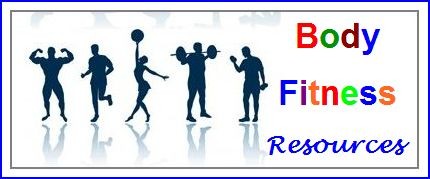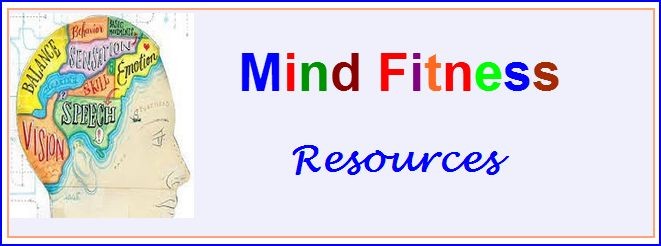Wisdom from News
Stephen Lau
Stephen Lau




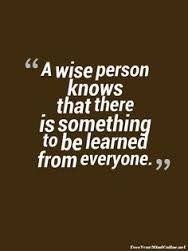
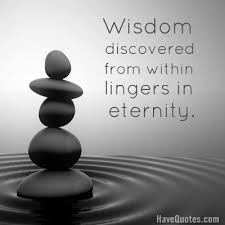

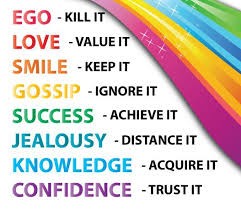
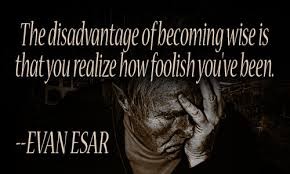
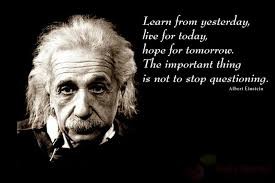




This book contains the 81 chapters of the translated text of the Chinese classic on human wisdom, written by the Chinese sage Lao Tzu. It also explains in plain English all the essentials of Tao wisdom, which is the wisdom of TAO TE CHING.
Please click here.
The Wisdom of Letting Go
by Stephen Lau
Letting go of all attachments in the material world is the only way to let go of the ego, which is formed by a distorted human mind. This human flaw can be eradicated with the ancient Tao wisdom from China, and complemented with the Biblical wisdom. Learn how to let go to let God.
To download the digital book, click here; to get the paperback, click here.
by Stephen Lau
Letting go of all attachments in the material world is the only way to let go of the ego, which is formed by a distorted human mind. This human flaw can be eradicated with the ancient Tao wisdom from China, and complemented with the Biblical wisdom. Learn how to let go to let God.
To download the digital book, click here; to get the paperback, click here.


Get the wisdom to empower your mind with information and intent for self-healing.
Click here for more details.




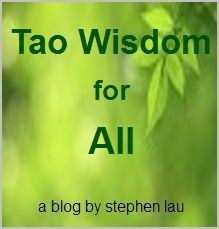
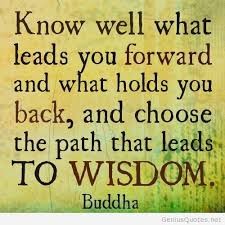

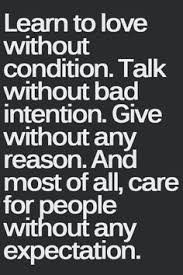




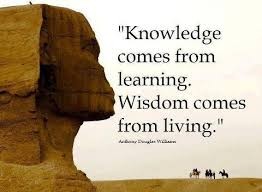

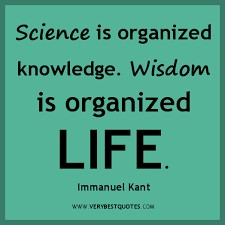

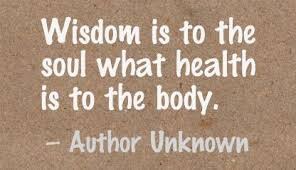
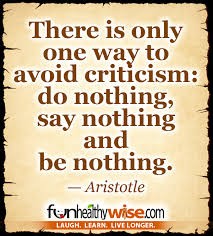

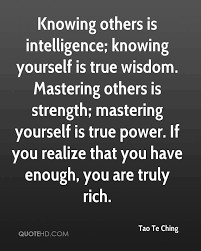
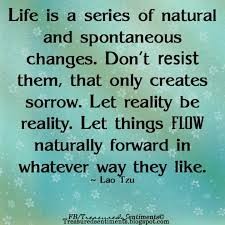
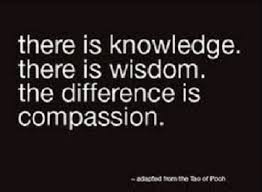

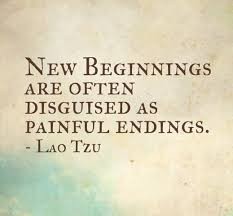
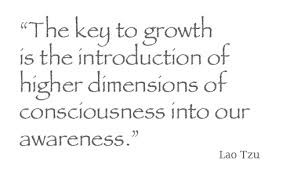
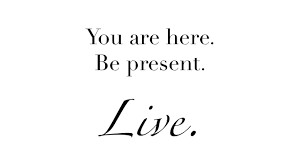
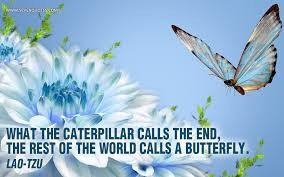
THE WISDOM NEWS
The recent CNN health news “Learn to Live with It: Becoming Stress-Free” is enlightening.
“People the world over believe that stress comes from external sources.
One complains of a nagging wife or hysterical husband. Another finds fault with the demands of work or the exploitation of management. Someone else grumbles at summer being too hot or winter being too cold.
Everyone thus lives with the belief that factors outside themselves produce stress -- so their entire focus is on correcting the external world. Yet despite our best efforts to fix these external factors, the problems remain unsolved and our minds continue to be consumed by stress.
Pleasure or pain, joy or sorrow, peace or stress-these are not found in external objects or beings. They are found in the relationship you have with those things.
For example one person finds pleasure in smoking cigarettes. Another detests them. One man may go to his lawyer to divorce his wife while another waits, desperately wanting to marry her. A cigarette produces pleasure to one, pain to another. The same lady produces joy for one, sorrow for another.
In life, be it with business or family, relationships matter. Lack of a proper relationship leads to frustration and builds up stress. Ironically, people take utmost care to choose the "right partner," but fail to set up the "right relationship" with that person -- and lose peace and harmony in the process.
It is not whom or what you meet in life that matters but how you meet it.
Your relationship with the world is entirely dependent on the nature of your inner personality. Your inner personality comprises two things: the mind and the intellect.
The mind desires and feels. The intellect reasons, judges, and decides.
When the intellect loses control over the mind's desires, you become disturbed. Stress is the mental agitation caused by unfulfilled desires. Thus the fundamental requirement for a stress-free life is to develop a strong intellect and control desires.
Intellectual strength is distinct and different from intelligence. Intelligence is mere storage of information-knowledge acquired from external sources and educational institutions, from teachers and textbooks. Any amount of intelligence cannot, per se, develop your intellect. The intellect is developed by individual effort through exercising one's faculty of questioning and reasoning.
With the lack of development of the intellect, people fail to understand that every human being is distinct and different from another-that each is governed by his or her own singular nature.
Therefore, we should assess the nature of each human individually. But few follow this practice in life. Without making individual assessments you are not able to relate to others properly. As a result, you expect one to behave differently from one's fundamental nature.”
Wisdom from the news
The wisdom expressed in the above news is that intelligence, which is accumulation of knowledge, doesn’t help you with stress, while on the other hand, intellect, which is human wisdom, may help you coping with stress. Essentially, it means “putting yourself in someone’s shoes”-something which many of us don’t do because we always look at everything from our own perspectives because of our ego.
Stress comes from the internal, and not the external. Stress originates from the ego-self. We all have an ego-inflated to a lesser or greater degree-and therefore we “expect” things, people, and circumstances to do things our way to satisfy our ego. If they don’t meet our expectations, they become our stressors. NO EGO NO STRESS may show you how to use human wisdom to let go of your ego to live a stress-free life as if everything is a miracle. Letting go of your attachment to your ego-self is not easy; you also need the wisdom of letting go.
Stephen Lau
Copyright© by Stephen Lau
(CNN) News on Death Before she started photographing death, Cathrine Ertmann had never seen a body. Viewed through her lens while standing in a morgue, it was less frightening and more of a quiet mystery to explore.
"I was amazed about how peaceful and undramatic everything looked," she said. "I got the chance to look at death without it being my own relatives, without feelings involved and it gave me a peace. The imagination of what death looks like is way worse than what I experienced."
Along with journalist Lisa Hornung, Ertmann was given access by the director for the Pathological Institute in Aarhus, Denmark, during the spring and summer of 2012 to document death and what happens to people after they die.
They also hoped the project, called "About Dying," would break the taboo about death by viewing it up close. After all, there is nothing so scary as what happens behind closed doors. But by opening up the morgue, a place where few of the living have been, the mystery lifts. Death, although harsh and sad, is a natural state.
Wisdom from the News
The news on death is illuminating; it sheds light on how we should view death-or rather life and death, which are always inter-related. Remember, life always begets death. What goes up must also come down. This is the natural cycle of everything in this world. Many people live without thinking of death or deliberately ignoring its existence, while others live but always with death on their minds-especially those elderly. Death is inevitable, but one needs not anticipate it as if it is imminent, even if one is advanced in years. Nobody knows when death may descend. Just live your life as if there is no tomorrow, and live in the now, and live as if everything is a miracle.
(CNN) - Happiness -- you know it when you see it, but it's hard to define. You might call it a sense of well-being, of optimism or of meaningfulness in life, although those could also be treated as separate entities. But whatever happiness is, we know that we want it, and that is just somehow good.
We also know that we don't always have control over our happiness. Research suggests that genetics may play a big role in our normal level of subjective well-being, so some of us may start out at a disadvantage. On top of that, between unexpected tragedies and daily habitual stress, environmental factors can bring down mood and dry up our thirst for living.
“Being able to manage the emotional ups and downs is important for both body and mind,” said Laura Kubzansky, professor of social and behavioral sciences at Harvard School of Public Health."For physical health, it's not so much happiness per se, but this ability to regulate and have a sense of purpose and meaning."
Why be happy?
Many scientific studies, including some by Kubzansky, have found a connection between psychological and physical well-being.
Qualifying Loneliness
A 2012 review of more than 200 studies found a connection between positive psychological attributes, such as happiness, optimism and life satisfaction, and a lowered risk of cardiovascular disease. Kubzansky and other Harvard School of Public Health researchers published these findings in the journal Psychological Bulletin. It's not as simple as "you must be happy to prevent heart attacks," of course. If you have a good sense of well-being, it's easier to maintain good habits: Exercising, eating a balanced diet and getting enough sleep, researchers said. People who have an optimistic mindset may be more likely to engage in healthy behaviors because they perceive them as helpful in achieving their goals, Kubzansky said. Lower blood pressure, normal body weight and healthier blood fat profiles were also associated with a better sense of well-being in this study.
Your happiness type matters.
For now these studies can only show associations; they do not provide hard evidence of cause and effect. But some researchers speculate that positive mental states do have a direct effect on the body, perhaps by reducing damaging physical processes. For instance, another of Kubzansky's studies found that optimism is associated with lower levels of inflammation.
If what you mean by happiness is specifically "enjoyment of life," there's newer evidence to support that, too. A study in the Canadian Medical Association Journal found that people ages 60 and older who said they enjoyed life less were more likely to develop disability over an eight-year period. Mobility was also related to enjoyment of life. This study does not prove that physical problems are caused by less enjoyment of life, but suggests a relationship.
Wisdom from the News
True and lasting happiness has to do with the mind: how you think, and, more specifically, how you perceive your perceptions and how you process your life experiences. It is always the concept of "half glass full or half glass empty." Happiness has to do with having a blueprint of how you live your life. The Book of Life and Living provides a blueprint to live as if everything is a miracle.
THE WISDOM NEWS
Depression a “powerful” risk factor for heart disease in young women
(CNN) Depression is as powerful a risk factor for heart disease as diabetes and smoking, study author Dr. Amit Shah, a cardiologist at Emory University in Atlanta, concluded.
Shah believes there's a biological reason as to why depression harms young females’ hearts in particular. Mechanisms underlying the association of depression and heart disease could be inflammation or hormonal regulation, the study author wrote. However, the exact reasons for the link are still unclear.
“When people get depressed, they stop taking care of themselves. And when they stop taking care of themselves, they get sick," said Dr. Suzanne Steinbaum, a spokes person for the American Heart Association, who was not involved the study.
On the other hand, when sick people don’t take care of themselves, they can also become depressed.
“Which comes first is always a challenge to know,” Steinbaum said.
Previous research supports Shah’s data. A 2012 study with nearly 7,000 U.S. adults conducted by John Hopkins University concluded that women aged 17 to 39 with depression had a significantly higher risk of ischemic heart disease death.
Patients with cardiac disease risk factors such as high blood pressure or obesity usually know about their condition and get professional medical treatment. That’s not the case with depression, Shah says.
“Part of the additional hurdle is the stigma in seeking care in the first place," Shah said. He hopes his study, published Wednesday in the Journal of the American Medical Association, will help patients overcome the stigma of depression so it doesn’t get in the way of their health.
Some people don’t even recognize that they are depressed. Steinbaum recommends asking yourself: Am I bothered by feeling down, depressed or hopeless? Do I feel little interest or pleasure in doing things I normally enjoy?
“If you answer yes to either of those questions, then you might really have a problem with depression.”
“For many people, antidepressants are very beneficial and help them get rid of the depression,” said Dr. Charles L. Raison, associate professor of psychiatry at the University of Arizona. But he says treating the depression will not make cardiac disease disappear.
Yet there is something that can reduce your depression and your heart health, Raison says: “Because you don’t know that treating one will treat the other, you want to treat both. The way to treat both is exercise.”
Wisdom from the News
The key point in the news is that many depressed individuals either do not realize they have depression or are reluctant to seek professional help due to the stigma. Depressed individuals do not take care of their health, and this may lead to heart disease, especially in young women. Exercise may help both depression and heart disease. So exercise regularly to avoid both conditions.
Wellness wisdom is that the body, the mind, and the soul are all interconnected. Therefore, it is important to take care of the mind to take care of the body; the mind also needs the help of the soul to control the body; without proper control and supervision from the mind and the soul, the body in the physical world may contaminate both the mind and the soul. Holistic wellness is a healthy body, mind, and soul in total alignment with one another.
THE WISDOM NEWS
Why Teaching Girls to Brag Is a Big Deal
NBC news “Why Teaching Girls to Brag Is a Big Deal”
Beginning at an early age, many young women are taught not to boast and brag. Now there’s a program to teach girls to do just the opposite - it wants girls and young women to trumpet their successes with their words and actions.
“We hear that it's impolite, that nice girls don't do it,” said career coach Peggy Klaus. ”What women do is that we put our heads down, we do really good work.”
”And yet when it comes to us, we don't talk about ourselves in a positive way,” she added.
Wisdom from the News
I totally disagree with career coach Peggy Klaus. Self-esteem may be a big deal in life. Without self-worth, it is almost impossible to achieve anything in life. But our self-worth comes from who we are and what we have done-and not from “bragging about” what we have not done. Nothing could be worse than giving oneself a “false” and “inflated” ego that does not exist. It could be very devastating when the disillusionment comes. As a matter of fact, we should let go the ego-self, which is the source of all human miseries and sufferings. Instead, find your true identity by asking simple but honest questions about what you want in your life, and not what others want you to become. Then set simple life goals for you to reach one by one, and one at a time.
In addition, bragging has to do with the ego-self. Let go of your ego, and you will have no stress. Read my book: NO EGO NO STRESS.
The recent CNN health news “Learn to Live with It: Becoming Stress-Free” is enlightening.
“People the world over believe that stress comes from external sources.
One complains of a nagging wife or hysterical husband. Another finds fault with the demands of work or the exploitation of management. Someone else grumbles at summer being too hot or winter being too cold.
Everyone thus lives with the belief that factors outside themselves produce stress -- so their entire focus is on correcting the external world. Yet despite our best efforts to fix these external factors, the problems remain unsolved and our minds continue to be consumed by stress.
Pleasure or pain, joy or sorrow, peace or stress-these are not found in external objects or beings. They are found in the relationship you have with those things.
For example one person finds pleasure in smoking cigarettes. Another detests them. One man may go to his lawyer to divorce his wife while another waits, desperately wanting to marry her. A cigarette produces pleasure to one, pain to another. The same lady produces joy for one, sorrow for another.
In life, be it with business or family, relationships matter. Lack of a proper relationship leads to frustration and builds up stress. Ironically, people take utmost care to choose the "right partner," but fail to set up the "right relationship" with that person -- and lose peace and harmony in the process.
It is not whom or what you meet in life that matters but how you meet it.
Your relationship with the world is entirely dependent on the nature of your inner personality. Your inner personality comprises two things: the mind and the intellect.
The mind desires and feels. The intellect reasons, judges, and decides.
When the intellect loses control over the mind's desires, you become disturbed. Stress is the mental agitation caused by unfulfilled desires. Thus the fundamental requirement for a stress-free life is to develop a strong intellect and control desires.
Intellectual strength is distinct and different from intelligence. Intelligence is mere storage of information-knowledge acquired from external sources and educational institutions, from teachers and textbooks. Any amount of intelligence cannot, per se, develop your intellect. The intellect is developed by individual effort through exercising one's faculty of questioning and reasoning.
With the lack of development of the intellect, people fail to understand that every human being is distinct and different from another-that each is governed by his or her own singular nature.
Therefore, we should assess the nature of each human individually. But few follow this practice in life. Without making individual assessments you are not able to relate to others properly. As a result, you expect one to behave differently from one's fundamental nature.”
Wisdom from the news
The wisdom expressed in the above news is that intelligence, which is accumulation of knowledge, doesn’t help you with stress, while on the other hand, intellect, which is human wisdom, may help you coping with stress. Essentially, it means “putting yourself in someone’s shoes”-something which many of us don’t do because we always look at everything from our own perspectives because of our ego.
Stress comes from the internal, and not the external. Stress originates from the ego-self. We all have an ego-inflated to a lesser or greater degree-and therefore we “expect” things, people, and circumstances to do things our way to satisfy our ego. If they don’t meet our expectations, they become our stressors. NO EGO NO STRESS may show you how to use human wisdom to let go of your ego to live a stress-free life as if everything is a miracle. Letting go of your attachment to your ego-self is not easy; you also need the wisdom of letting go.
Stephen Lau
Copyright© by Stephen Lau
(CNN) News on Death Before she started photographing death, Cathrine Ertmann had never seen a body. Viewed through her lens while standing in a morgue, it was less frightening and more of a quiet mystery to explore.
"I was amazed about how peaceful and undramatic everything looked," she said. "I got the chance to look at death without it being my own relatives, without feelings involved and it gave me a peace. The imagination of what death looks like is way worse than what I experienced."
Along with journalist Lisa Hornung, Ertmann was given access by the director for the Pathological Institute in Aarhus, Denmark, during the spring and summer of 2012 to document death and what happens to people after they die.
They also hoped the project, called "About Dying," would break the taboo about death by viewing it up close. After all, there is nothing so scary as what happens behind closed doors. But by opening up the morgue, a place where few of the living have been, the mystery lifts. Death, although harsh and sad, is a natural state.
Wisdom from the News
The news on death is illuminating; it sheds light on how we should view death-or rather life and death, which are always inter-related. Remember, life always begets death. What goes up must also come down. This is the natural cycle of everything in this world. Many people live without thinking of death or deliberately ignoring its existence, while others live but always with death on their minds-especially those elderly. Death is inevitable, but one needs not anticipate it as if it is imminent, even if one is advanced in years. Nobody knows when death may descend. Just live your life as if there is no tomorrow, and live in the now, and live as if everything is a miracle.
(CNN) - Happiness -- you know it when you see it, but it's hard to define. You might call it a sense of well-being, of optimism or of meaningfulness in life, although those could also be treated as separate entities. But whatever happiness is, we know that we want it, and that is just somehow good.
We also know that we don't always have control over our happiness. Research suggests that genetics may play a big role in our normal level of subjective well-being, so some of us may start out at a disadvantage. On top of that, between unexpected tragedies and daily habitual stress, environmental factors can bring down mood and dry up our thirst for living.
“Being able to manage the emotional ups and downs is important for both body and mind,” said Laura Kubzansky, professor of social and behavioral sciences at Harvard School of Public Health."For physical health, it's not so much happiness per se, but this ability to regulate and have a sense of purpose and meaning."
Why be happy?
Many scientific studies, including some by Kubzansky, have found a connection between psychological and physical well-being.
Qualifying Loneliness
A 2012 review of more than 200 studies found a connection between positive psychological attributes, such as happiness, optimism and life satisfaction, and a lowered risk of cardiovascular disease. Kubzansky and other Harvard School of Public Health researchers published these findings in the journal Psychological Bulletin. It's not as simple as "you must be happy to prevent heart attacks," of course. If you have a good sense of well-being, it's easier to maintain good habits: Exercising, eating a balanced diet and getting enough sleep, researchers said. People who have an optimistic mindset may be more likely to engage in healthy behaviors because they perceive them as helpful in achieving their goals, Kubzansky said. Lower blood pressure, normal body weight and healthier blood fat profiles were also associated with a better sense of well-being in this study.
Your happiness type matters.
For now these studies can only show associations; they do not provide hard evidence of cause and effect. But some researchers speculate that positive mental states do have a direct effect on the body, perhaps by reducing damaging physical processes. For instance, another of Kubzansky's studies found that optimism is associated with lower levels of inflammation.
If what you mean by happiness is specifically "enjoyment of life," there's newer evidence to support that, too. A study in the Canadian Medical Association Journal found that people ages 60 and older who said they enjoyed life less were more likely to develop disability over an eight-year period. Mobility was also related to enjoyment of life. This study does not prove that physical problems are caused by less enjoyment of life, but suggests a relationship.
Wisdom from the News
True and lasting happiness has to do with the mind: how you think, and, more specifically, how you perceive your perceptions and how you process your life experiences. It is always the concept of "half glass full or half glass empty." Happiness has to do with having a blueprint of how you live your life. The Book of Life and Living provides a blueprint to live as if everything is a miracle.
THE WISDOM NEWS
Depression a “powerful” risk factor for heart disease in young women
(CNN) Depression is as powerful a risk factor for heart disease as diabetes and smoking, study author Dr. Amit Shah, a cardiologist at Emory University in Atlanta, concluded.
Shah believes there's a biological reason as to why depression harms young females’ hearts in particular. Mechanisms underlying the association of depression and heart disease could be inflammation or hormonal regulation, the study author wrote. However, the exact reasons for the link are still unclear.
“When people get depressed, they stop taking care of themselves. And when they stop taking care of themselves, they get sick," said Dr. Suzanne Steinbaum, a spokes person for the American Heart Association, who was not involved the study.
On the other hand, when sick people don’t take care of themselves, they can also become depressed.
“Which comes first is always a challenge to know,” Steinbaum said.
Previous research supports Shah’s data. A 2012 study with nearly 7,000 U.S. adults conducted by John Hopkins University concluded that women aged 17 to 39 with depression had a significantly higher risk of ischemic heart disease death.
Patients with cardiac disease risk factors such as high blood pressure or obesity usually know about their condition and get professional medical treatment. That’s not the case with depression, Shah says.
“Part of the additional hurdle is the stigma in seeking care in the first place," Shah said. He hopes his study, published Wednesday in the Journal of the American Medical Association, will help patients overcome the stigma of depression so it doesn’t get in the way of their health.
Some people don’t even recognize that they are depressed. Steinbaum recommends asking yourself: Am I bothered by feeling down, depressed or hopeless? Do I feel little interest or pleasure in doing things I normally enjoy?
“If you answer yes to either of those questions, then you might really have a problem with depression.”
“For many people, antidepressants are very beneficial and help them get rid of the depression,” said Dr. Charles L. Raison, associate professor of psychiatry at the University of Arizona. But he says treating the depression will not make cardiac disease disappear.
Yet there is something that can reduce your depression and your heart health, Raison says: “Because you don’t know that treating one will treat the other, you want to treat both. The way to treat both is exercise.”
Wisdom from the News
The key point in the news is that many depressed individuals either do not realize they have depression or are reluctant to seek professional help due to the stigma. Depressed individuals do not take care of their health, and this may lead to heart disease, especially in young women. Exercise may help both depression and heart disease. So exercise regularly to avoid both conditions.
Wellness wisdom is that the body, the mind, and the soul are all interconnected. Therefore, it is important to take care of the mind to take care of the body; the mind also needs the help of the soul to control the body; without proper control and supervision from the mind and the soul, the body in the physical world may contaminate both the mind and the soul. Holistic wellness is a healthy body, mind, and soul in total alignment with one another.
THE WISDOM NEWS
Why Teaching Girls to Brag Is a Big Deal
NBC news “Why Teaching Girls to Brag Is a Big Deal”
Beginning at an early age, many young women are taught not to boast and brag. Now there’s a program to teach girls to do just the opposite - it wants girls and young women to trumpet their successes with their words and actions.
“We hear that it's impolite, that nice girls don't do it,” said career coach Peggy Klaus. ”What women do is that we put our heads down, we do really good work.”
”And yet when it comes to us, we don't talk about ourselves in a positive way,” she added.
Wisdom from the News
I totally disagree with career coach Peggy Klaus. Self-esteem may be a big deal in life. Without self-worth, it is almost impossible to achieve anything in life. But our self-worth comes from who we are and what we have done-and not from “bragging about” what we have not done. Nothing could be worse than giving oneself a “false” and “inflated” ego that does not exist. It could be very devastating when the disillusionment comes. As a matter of fact, we should let go the ego-self, which is the source of all human miseries and sufferings. Instead, find your true identity by asking simple but honest questions about what you want in your life, and not what others want you to become. Then set simple life goals for you to reach one by one, and one at a time.
In addition, bragging has to do with the ego-self. Let go of your ego, and you will have no stress. Read my book: NO EGO NO STRESS.




































